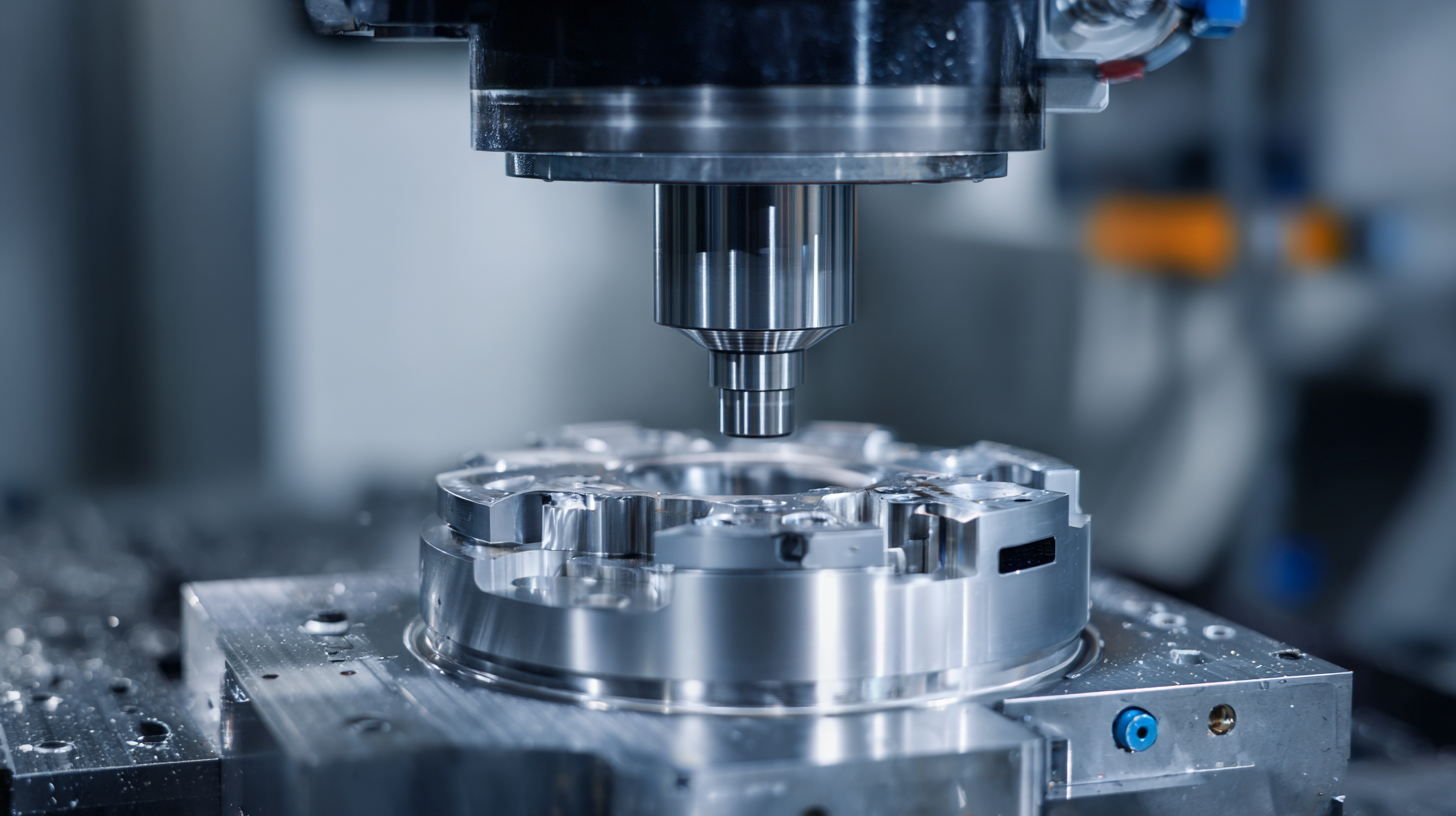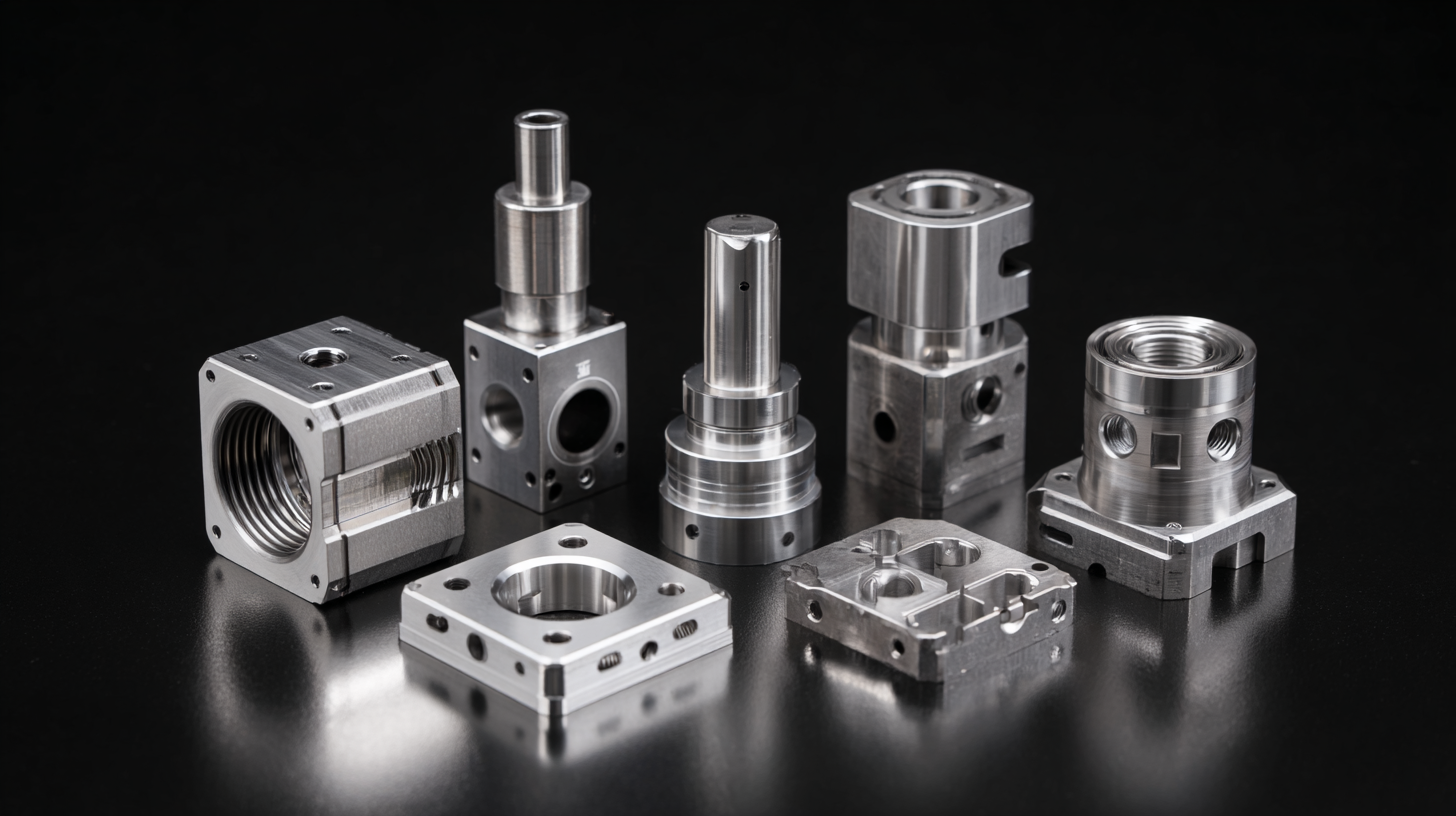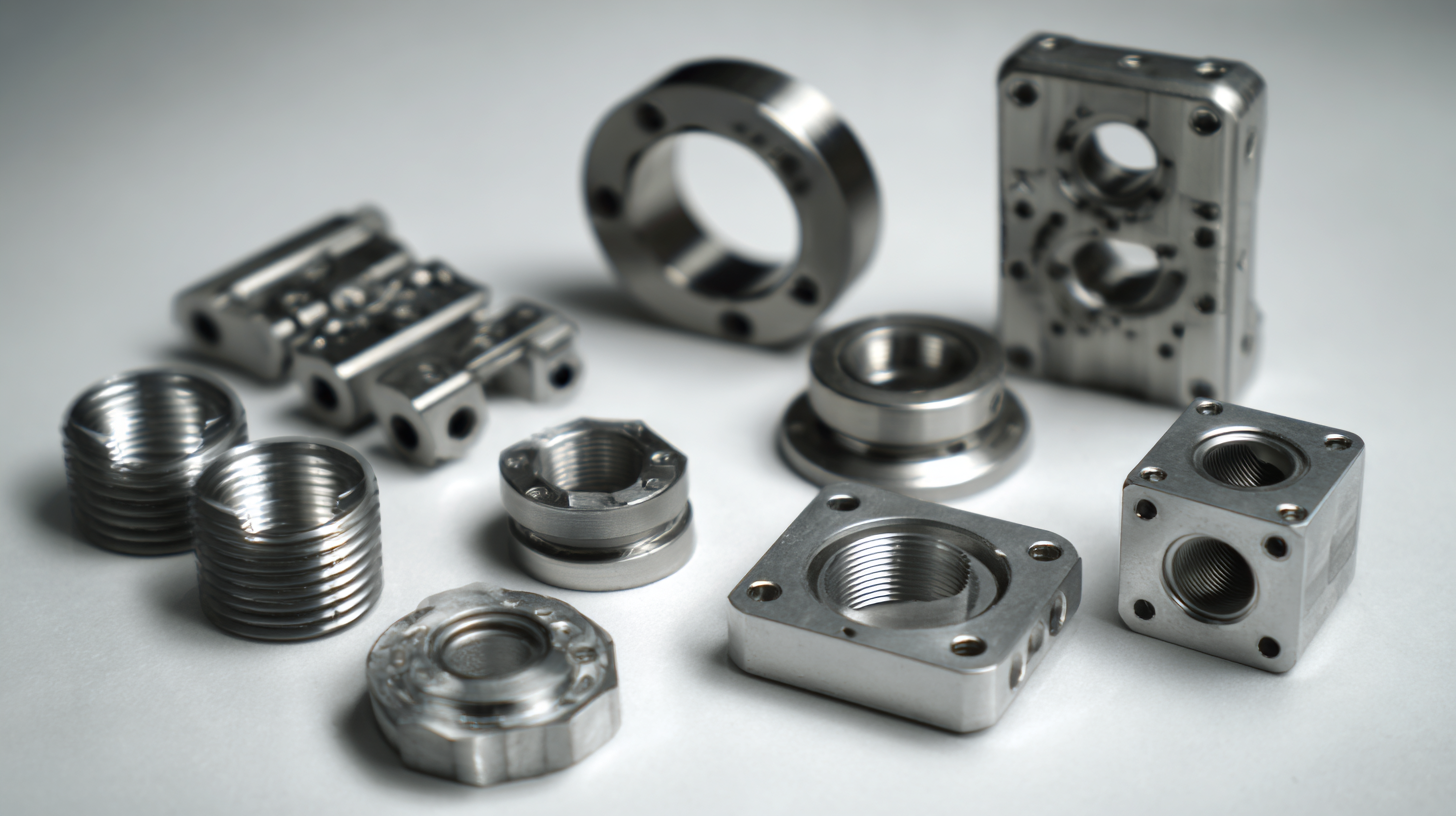Elevating Global Standards with Premium CNC Machine Parts from China
In today's competitive manufacturing landscape, the importance of high-quality CNC machine parts cannot be understated. As businesses strive to enhance their operational efficiency and product quality, sourcing premium components from reliable manufacturers has become crucial. China emerges as a global leader in this domain, with its world-class factories dedicated to producing superior CNC machine parts that meet international standards. By leveraging advanced technology and skilled craftsmanship, these Chinese manufacturers are elevating global production capabilities, ensuring that companies can rely on top-tier components tailored to their specific needs. This blog will delve into how China’s manufacturing prowess is setting new benchmarks in the industry, ultimately empowering businesses worldwide to achieve excellence in their operations.

The Future of CNC Machining: Key Technological Trends for 2025
The future of CNC machining is poised for significant transformation as we move toward 2025, driven by technological advancements and evolving market demands. According to a report by MarketsandMarkets, the global CNC machine market is projected to reach $100 billion by 2025, reflecting a compound annual growth rate (CAGR) of 6.5% from 2020. This growth is fueled by the increasing adoption of automation and smart technologies in manufacturing processes.
One of the key trends shaping the CNC machining landscape is the integration of artificial intelligence (AI) and machine learning. These technologies enhance precision and efficiency by enabling predictive maintenance and real-time monitoring of machine performance. Additionally, the rise of Industry 4.0 is pushing manufacturers to adopt more connected and flexible production systems, with IoT devices linked to CNC machines to streamline operations. According to a study by Deloitte, 77% of manufacturing executives believe that digital transformation will be a top priority in the coming years, highlighting the urgency for companies to invest in innovative CNC machine parts to remain competitive.
Furthermore, advancements in materials science are enabling CNC machines to work with a wider variety of composite and lightweight materials. As the demand for specialized components rises, the importance of high-quality CNC machine parts is paramount. The use of advanced machining techniques like additive manufacturing is also becoming prevalent, allowing for the creation of complex geometries that were previously difficult to achieve. This synergy of trends points toward a dynamic future for the CNC machining industry, ultimately elevating global standards through superior engineering and manufacturing practices.
Understanding Premium CNC Parts: Quality Standards from China
In recent years, China has emerged as a forerunner in the production of high-quality CNC machine parts, underscoring the country's commitment to elevating global standards in manufacturing. With significant enhancements in innovation capabilities, Chinese companies are developing CNC parts that not only meet but often exceed international quality standards. This evolution can be attributed to advances in technology and engineering within Chinese universities and industries, which have significantly bolstered the response to global demands for precision and reliability in machining.
The focus on premium CNC parts is evident in the rigorous quality assurance processes that many manufacturers have adopted. These processes ensure that every component is built to withstand demanding operational conditions while maintaining high performance. For instance, widely used components, including advanced connector systems for industrial applications, highlight the emphasis on durable, high-performance products. As a result, global businesses are increasingly turning to Chinese manufacturers for their CNC machining needs, recognizing the blend of quality, cost-effectiveness, and innovative designs that set these parts apart in the market.

Innovative Materials in CNC Machining: Enhancing Performance and Durability
In the fast-evolving landscape of CNC machining, the choice of materials plays a pivotal role in enhancing both performance and durability. Innovative materials such as high-performance alloys, composites, and advanced polymers are being increasingly utilized to produce CNC machine parts that not only meet but exceed global standards. These materials offer exceptional strength-to-weight ratios, resistance to wear, and the ability to withstand harsh operating conditions, making them ideal for various applications in industries like aerospace, automotive, and medical devices.
Moreover, advancements in manufacturing technologies compound the benefits of these innovative materials. Techniques such as additive manufacturing and precision machining enable the production of complex geometries and intricate designs that were once deemed impractical. By leveraging these advanced processes, manufacturers can create parts with optimized performance characteristics, ultimately leading to greater efficiency and longevity. As the demand for precision and reliability grows in global markets, the integration of cutting-edge materials into CNC machining is not just a trend but a necessity for staying competitive and achieving higher operational standards.
Elevating Global Standards with Premium CNC Machine Parts from China - Innovative Materials in CNC Machining: Enhancing Performance and Durability
| Part Name | Material | Machining Tolerance (mm) | Surface Finish | Application |
|---|---|---|---|---|
| Gear Shaft | Alloy Steel | 0.02 | Honed | Automotive |
| Spacer | Aluminum 6061 | 0.05 | Anodized | Aerospace |
| Bracket | Stainless Steel 304 | 0.03 | Polished | Construction |
| Housing | Polymer | 0.1 | Textured | Electronics |
| Disc | Carbon Fiber | 0.01 | Satin | Sports Equipment |
How to Choose the Right CNC Machine Parts for Your Manufacturing Needs
When it comes to selecting the right CNC machine parts for your manufacturing needs, understanding the specific requirements of your operations is crucial. With the global CNC market projected to reach significant heights, driven by innovation and precision, choosing high-quality parts can directly impact efficiency and output. Companies must evaluate factors such as material, tolerance, and compatibility with existing machinery to ensure optimal performance and reliability.
Additionally, the trend toward customized solutions is reshaping how businesses approach CNC parts procurement. Online platforms offering rapid configuration and ordering of bespoke components have made it easier for manufacturers to access the specific parts they need without extensive lead times. As the manufacturing landscape continues to evolve, embracing these modern procurement options can enhance competitiveness and adaptability in a fast-paced market. Companies that leverage advanced technology for sourcing CNC components are better positioned to meet the dynamic challenges of the industry.
Navigating Global Supply Chains: Ensuring Consistency in Quality and Delivery
Navigating the complexities of global supply chains is crucial for industries relying on precision engineering and advanced manufacturing. As the demand for high-quality CNC machine parts increases, particularly from China, it’s essential to ensure consistency in both quality and delivery.
According to a recent industry report by Grand View Research, the global CNC machine market is projected to reach $100 billion by 2025, underscoring the growing reliance on premium parts and components.
To maintain competitive advantage, businesses must establish robust supplier partnerships and implement rigorous quality control measures. Adopting lean manufacturing practices can streamline production and minimize lead times. Additionally, leveraging technology such as AI and IoT can enhance monitoring of supply chain operations, facilitating real-time adjustments to address potential disruptions.
Tip: When selecting a supplier, prioritize those who have certifications like ISO 9001, as this ensures adherence to quality management standards.
Tip: Regularly assess your supply chain strategies, focusing on transparent communication with suppliers, which can significantly improve delivery timelines and product quality.
Adopting these practices not only enhances operational efficiency but also positions companies to meet the increasing expectations of the global market.

